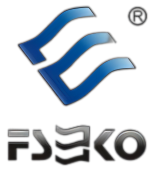Digital Transformation in Packaging with Digital Lamination
Technological Innovations Driving Change
Digital printing advancements enable high-resolution graphics directly onto substrates before lamination, eliminating traditional plates and enabling complex designs. Smart manufacturing systems reduce production cycles by up to 70%, allowing real-time design adjustments.
Meeting Customization Demand in Modern Markets
Brands leverage variable data printing for regional promotions and limited editions without minimum order constraints. A leading beverage company achieved 89% consumer recall using personalized augmented reality elements through textured lamination films.
Material Science Breakthroughs
New recyclable polyester films withstand chemical exposure and remain flexible at -40°C. Bio-based variants derived from sugarcane match petroleum films’ barrier properties, while antimicrobial nanocoatings extend perishable goods’ shelf-life by 40%.
Waste Reduction Impact
Precise application cuts material consumption by eliminating overlamination margins. On-demand production reduces inventory waste, and water-based adhesives replace solvents—achieving the 30% waste reduction benchmark documented by the Sustainable Packaging Coalition.
How Packaging with Digital Lamination Enhances Brand Value
Premium Aesthetics and Tactile Experience
Lamination creates luxury finishes like soft-touch surfaces, increasing purchase intent by over 30%. These textures protect products during transit while enabling holographic or matte effects. Eco-conscious films maintain visual impact sustainably.
Personalization in Packaging for Consumer Connection
Variable data techniques enable hyper-customized designs, boosting brand loyalty by 40%. Customized messaging or regional themes turn passive buyers into engaged advocates, particularly in beauty, beverage, and electronics sectors.
Smart Packaging Solutions through Digital Lamination
Integrating NFC and RFID Technologies
Digital lamination embeds NFC/RFID tags beneath surfaces, enabling real-time supply chain tracking and consumer engagement via smartphone interaction.
Anti-Counterfeiting Features
Layered security includes:
- Tamper-evident holograms
- Encrypted QR codes under scratch-off layers
- Microtext visible under magnification
These deter counterfeiting, which costs $500 billion annually (INTERPOL 2023).
Interactive Consumer Engagement Models
Packaging becomes interactive via:
- AR triggers for brand stories
- Gamified QR loyalty rewards
- NFC-enabled feedback collection
This boosts conversions by 18% (Forrester 2023).
Sustainability Paradox: High-Tech vs Eco-Footprint
Ultra-thin components (0.3mm) and compostable PLA substrates reduce lifecycle emissions by 73% (Ellen MacArthur Foundation 2024).
Packaging with Digital Lamination Workflow Efficiency
Prototyping to Production Timeline Compression
Eliminating plate-making reduces lead times by 65%, enabling same-day sampling versus weeks in analog workflows.
Short-Run Economic Advantage
Batches under 5,000 units see 40% cost savings due to:
- No plate costs
- Minimal substrate waste (under 5% spoilage)
- Automated job changeovers
Supply Chain Simplification
On-demand production cuts warehousing needs, while localized printing reduces transport emissions by 30% (Packaging Digest 2024).
Industry Adoption Barriers
Key hurdles include:
- High initial investments (~$1.2M per press)
- Need for operator retraining in digital workflows
Early adopters achieve ROI within 18 months via landfill credits and premium pricing.
Emerging Trends in Digital Lamination
Minimalist Designs Meeting Sustainability Goals
Simplified structures reduce material waste by 30% and energy use by 18% versus traditional methods.
AR-Enabled Packaging Experiences
QR codes under laminates unlock interactive content, increasing engagement by 40%.
Bio-Based Material Applications
Corn starch and algae-based films cut petroleum dependency by 55% while maintaining performance.
Global Market Growth Projections
Sector growth at 17% CAGR through 2028, driven by Asia-Pacific (45% of new installations) and e-commerce demands.
Frequently Asked Questions
What is digital lamination in packaging?
Digital lamination involves applying a digital processing technique to add protective and decorative layers to packaging materials, enabling high-quality finishes and advanced functionalities.
How does digital lamination improve brand value?
Digital lamination enhances aesthetics, enables personalization, and integrates smart technologies like NFC/RFID for tracking and consumer engagement, thus boosting brand recognition and value.
What are the benefits of using digital lamination for packaging?
Benefits include increased design flexibility, reduction of waste, cost savings in low-volume production, and the ability to quickly adapt to market changes.
How does digital lamination contribute to sustainability?
Digital lamination reduces material waste, uses eco-friendly adhesives, and employs recyclable or biodegradable materials, all contributing to a lower environmental impact.


